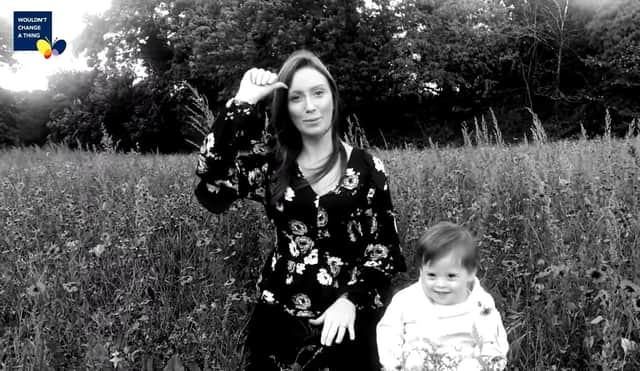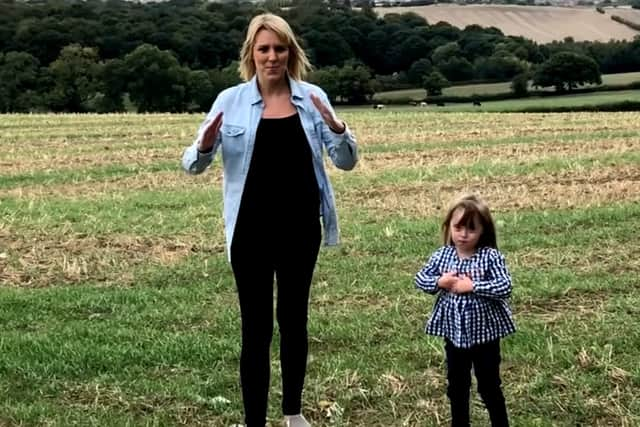VIDEO: Down's Syndrome families out to go viral again with new sing and sign-along


GET your tissues ready — kids with Down’s Syndrome and their mums who went viral with a musical Down’s Syndrome video have gone back in front of the camera again for another sweet sing and sign-along.
The first Carpool Karaoke video, which showed them lip-syncing and signing to Christina Perri’s A Thousand Years, attracted 230 million views on social media channels and YouTube.
Advertisement
Hide AdAdvertisement
Hide AdA single Advertiser tweet about the two Rotherham mum-and-daughter duos involved — Rachel Blencowe and daughter Amelia (below) and Melissa Lockwood and her daughter Francesca — was seen by almost three million people and retweeted by original Carpool Karaoke host James Corden.
Rachel and Amelia feature in the new video, as do Nicola Bailey (above), also from Rotherham, and her twins Harper and Quinn and son Lucas.


The initiative sparked schools across the nation to learn to sign, a government petition to introduce signing in schools and was even shown at the Queen's Birthday celebrations in Abu Dhabi.
Now campaigners from charitable organisation Wouldn’t Change a Thing - this time with dads playing their part, too - are doubling down on their positive message with another heart-warming video, which aims to show the joy that children with Down's Syndrome bring to family life on a backdrop of ever-increasing screening and termination for the condition.
Advertisement
Hide AdAdvertisement
Hide AdThis time the parents and their kids are backed by and signing to the song Tightrope from The Greatest Showman to mark Down’s Syndrome Awareness month.
Jamie McCallum, chairman of Wouldn'’t Change a Thing said: “The lives of people with Down’s Syndrome have changed immeasurably over the last few decades, but society's perceptions have failed to keep up.
“Living happy, independent, working lives can be a reality now and research proves that families are happier for having the condition in their lives. But if no-one tackles society’s outdated perceptions of Down’s Syndrome then less families, schools and workplaces will experience the wonderful value that it can bring.
“So that's what we’re trying to show the world - one set of eyeballs at a time.”